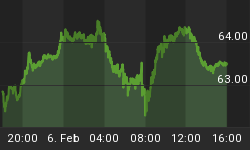One of the more distinguishing factors of the latest stock market rally is the number of non-confirmations of trend. While the Nasdaq, Dow and the S&P 500 peaked earlier this year in that order, the S&P 600 small caps reached a new all time high last week while the Dow Transports are trading at new five-year highs.
Dow Theory 101: The principal tenant of Dow theory is that for a primary trend to be valid both the Industrials and Transports must confirm each other. If one average reaches a new high or low the other must follow suit to consider the trend valid.
Interestingly, a Dow Theory non-confirmation with the Transports leading and Industrials lagging is quite unusual as most non-confirmations see the Transports fall behind first. We have to go back to 1977 to find a similar multi-month rally in the Transports unconfirmed by the Industrials.
Remarkably, the Transports are hitting new highs despite the dismal circumstances surrounding most airline companies. Airlines often act as a leading indicator of the general economic environment due to their high sensitivity to interest rates, energy prices and labor costs. So a leading Transportation average is seen by many to be a healthy sign for the market as it implies a fundamentally strong economy.
Yet the significance of a multi-month non-confirmation between the averages cannot be ignored. It is of overriding importance that there exists mutual confirmation of the moves by both the Industrials and the Transports, without which we must assume something is amiss in the economy.
Then: In 1977, the Transports reached new highs despite the fact that airlines and truckers were listless. Yet the coal-carrying rails rallied as part of the greater energy play at hand. The divergence carried on for eight months as the Industrials struggled to overcome the psychological 1000 mark. Peaking at 247 in the Transports both averages headed down together with the Industrials falling 27% and Transports loosing 20%.

Now: Last week the Transports reached a five-year high of 3,388 despite record highs in oil prices pressuring the airlines. The Industrials topped in February and made new lows in May. This was unconfirmed by the Transports, which then went on to new multi-year highs in June, again unconfirmed by the Dow Industrials. The divergence has now lasted for at least five months as both the trucking and rail companies outperform. Yet like in 1977, the Industrials have struggled to maintain above the psychological 10,000 mark.

If the Transports top here and the Dow Industrials fail to hold onto the key 10,000 level we have every expectation that the current non-confirmation will play out as it did in 1977. As such we could expect to see the broader averages retest their 2002 lows in 2005.















